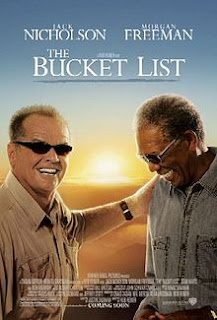Cherry-Picking History

A few weeks ago, at the same time I was lamenting the sheer amount of trash we humans deposit on the side of the road (among other places), I was listening to Michael Jackson's pre-Thriller album, Off the Wall. Because I connect a lot of music to different times of my life, I quickly calculated that Off the Wall was a monster album throughout the entirety of my 7th grade year. Before he was ever called The King of Pop, a very young Michael Jackson churned out hits like Don't Stop 'Til You get Enough, Rock With You, Off the Wall, and She's Out of My Life. The songs were great then, they're great now. And regardless of the late singer's alleged (or confirmed) abhorrent, criminal behavior, I will continue to listen to his music. Is that wrong?
Ken Burns seminal documentary on the American Civil War was broadcast on PBS in the fall of 1990. That nine-part series held me spellbound over the course of two weeks, launching me into a decade of intense reading of just about every facet of the those tumultuous four years. Biographies, battlefield histories, even studies of Civil War-era cities, I devoured everything I could get my hands on whether the topic was North or South, Union or Confederacy, Lincoln or Davis, Grant or Lee. And despite being appalled by what the Southern Confederacy fought for (Human Slavery, pure and simple—don't let anyone tell you otherwise), I found myself admiring (grudgingly) the fighting spirit of Lee's Army of Northern Virginia. Is that wrong? Lee, his generals, and the men who fought for that repugnant cause, were clearly on the wrong side of history. Is my admiration (however narrowly-focused) wrong?
Minnesota's own Garrison Keillor was a favorite author of mine for many years. His fictional small town, Lake Wobegon, felt a lot like home to me, populated by stoic Scandinavians who might as well have been members of my extended family—people of few words and emotions, but hard-working and decent. Keillor's writing style—folksy, meandering, often hilarious, but always with heart—is akin to being covered by a blanket in front of a roaring fire. But now Mr. Keillor has disappeared from the public eye, another #MeToo perpetrator whose creepy, harassing behavior finally caught up with him. For a few weeks all of the Keillor books I own were begging to be donated or recycled or just plain tossed. But they still sit on my bookshelf today and I'm pretty sure I will re-read many of them. Is that wrong?
Cherry-picking history is all the rage these days. Who—the "experts" ponder—should we consign to the "ash heap of history" next? Talk about slippery slopes. Few people are all one thing or another. Sure, there are many who deserve universal scorn (Hitler, Stalin, Jared from Subway, pedophiles, rapists, etc.), but who among us would want to be defined by the worst thing we ever did? Not me.
1. Do we regard Franklin Roosevelt as nothing more than a monster because of his order interning Japanese-Americans?
2. Do we remember Alexander Hamilton, John Kennedy, and Martin Luther King as nothing more
than philandering playboys?
than philandering playboys?
3. Has the Catholic Church been nothing more than a safe haven for child molesters for over two
millenia?
millenia?
4. What about Washington and Jefferson? Messy histories, both of them.
We are all products of the times we live in. That doesn't mean we who live in the present should excuse the behavior of people from the past. There are plenty of actions that are timelessly wrong (Jackson's pedophilia, The South's endorsement of slavery and white supremacy, Keillor's repeated unwanted advances, to name a very few). But maybe we should try a little harder to understand the motivations (wrong though they may have been) of people who have—like all of us—complicated lives, rather than condemn them outright from our high, haughty perch in the present.


"The evil men do lives after them
ReplyDeleteThe good is oft interred with their bones"
-Mark Antony
You just summed it up perfectly!
Delete